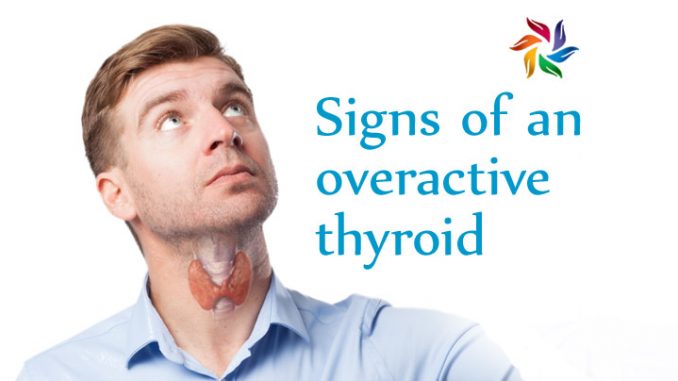
Overactive thyroid disease or hyperthyroidism is a clinical disorder in which your thyroid gland synthesizes and releases more thyroid hormone than your body needs.
Your thyroid gland is in the front of your neck, and the hormones it produces affect almost every part of your body from your nervous system, to your skin, muscles and bones. They play a vital role in controlling how your body utilizes energy, a process known as metabolism. This includes how your heart pumps and even how you use energy and calories.
Females and the elderly are more likely to develop overactive thyroid.
Symptoms of hyperthyroidism may be not specific and can often mimic other diseases, illnesses and medical conditions. If you have a mild to moderate form of hyperthyroidism, you may hardly notice any sign and symptoms of this disease. However, an overactive thyroid gland often leads to restlessness, discomfort or even disability that interferes with your daily activities or routines. Symptoms to look out for include:
1. Fast Heartbeat (tachycardia)
Increased levels of thyroid hormones produced and released from the thyroid gland stimulate the heart to beat more rapidly and more strongly. This results in a fast and rapid heart rate which is called tachycardia.
Tachycardia is one the important signs of overactive thyroid. However, awareness of the heart beating within the chest by patients is termed as palpitations.
More symptoms on next page…

